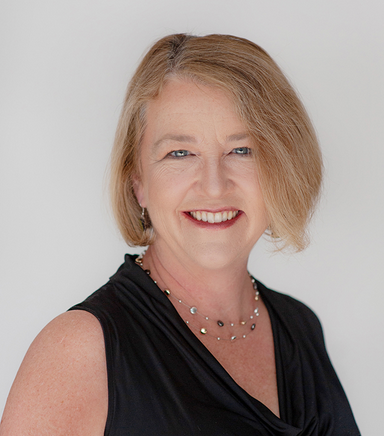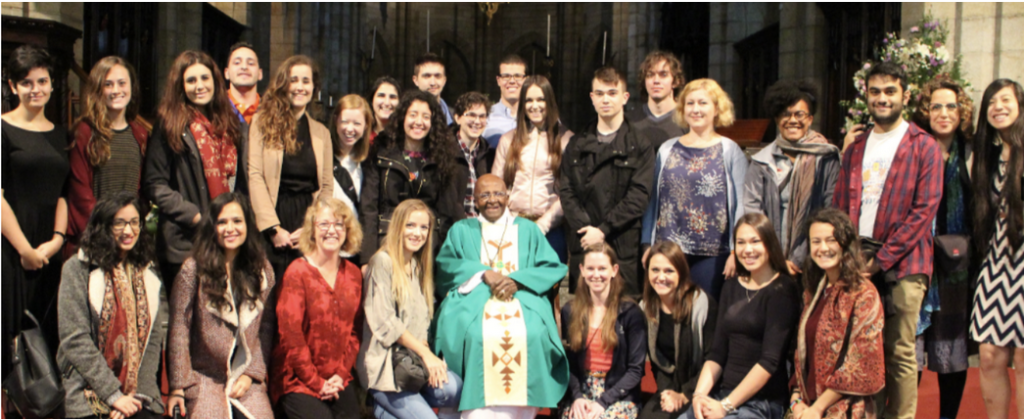
The Communication Department is celebrating Dr. Deirdre Johnston’s retirement! We are bereft and yet excited for Dr. Johnston as she moves into a new phase of her career. Dr. Johnston has taught countless courses at Hope College and continues to publish research articles and scholarly books in communication. Her teaching, service, research and mentorship have provided incredible leadership to the Communication Department at Hope College, to Hope students, and to the broader communication discipline. We have so much to celebrate!
The Communication Department is honoring Dr. Johnston through our Day of Giving (Feb 25-26) through the Communication Legacy May Term Scholarship: all donations directly fund this scholarship! Communication majors who are enrolled in an off-campus May Term led by a Communication faculty member are eligible for this award and the purpose of this scholarship is to enable students without the financial means to benefit from an off-campus experience.
Given Dr. Johnston’s longstanding leadership of off-campus learning and intercultural communication, we are delighted to honor Dr. Johnston through this legacy award.

Photo credit: Dr. Johnston
Dr. Johnston kindly agreed to answer the following interview questions, reflecting on her career and communication.
1. Who inspired you to pursue a career in Communication? and whose work has kept you inspired throughout your career?
There are a list of people who inspired my interest in how the brain works to process information and set communication goals, including communication scholars and friends, Donovan Ochs (classical rhetoric), Barnett Pearce (Coordinated Management of Meaning Theory), Jesse Delia, Barbara O’Keefe and Howard Sypher (interpersonal cognitive complexity theory), and Leslie Baxter (relational dialectical theory), and psychologist John Cacioppo (persuasion). In my early career, I was really into BRAINS, and spent part of my graduate school training slicing up brains at the University of Iowa anatomy lab, and doing brain processing research on neurology and cardiology patients to make connections between the brain and communication efficacy. But alas, I am not a monogamous communication scholar; I have pursued a lot of different interests within communication during my career, and, as a result, the scholars that inspire me have similarly evolved. During my work/motherhood research decade I enmeshed myself in the work of sociologist Arlie Russell Hochschild, and during my peace with justice decade I developed a scholar-crush on Jean Paul Lederach. The focus on identities, equity, and inclusion central to intergroup dialogue has most recently led me to read everything I can find by Ibram X. Kendi and Isabel Wilkerson, and my global communication passion has me stalking the wisdom of Eric Hartman. With a strong foundation in communication theory it is great fun to read scholarship outside of the communication discipline and make connections to how this work informs our understanding of communication!
2. Thinking about the courses you’ve taught at Hope, what are your favorite courses to teach and why?
How can there be a favorite? I love teaching Intercultural Communication and helping students develop their global competencies, and I love growing with students as we navigate the process of Intergroup Dialogue and diversity education, especially as I get to see these students utilize their dialogue skills in campus organizations and in teaching modules for courses in other departments (the Intergroup Dialogue Practicum). In addition, special topics courses in Cross-cultural Happiness, Communication & Trauma, Narratives of Peace and Conflict, and Compassion fuel my passions for global learning, peace and conflict studies, and teaching for social justice. And, my ALL-TIME favorite? Teaching peace and conflict communication in the context of travel seminars to Northern Ireland, Scotland, and South Africa. Engaging with students through travel learning is transformative (for me as well as for them) and presents such a rich opportunity to get to know students very well and to have those wonderful conversations that reflect deep learning and exploration of ideas.




Photos (clockwise): Students live the monks’ life with the Iona Christian Community in Scotland; Students hearing stories of former prisoners (Ulster Paramilitaries) in Norther Ireland; Intergroup Dialogue class celebrating the completion of their Human Book Project; and Intergroup Dialogue class learning about communication while roasting marshmallows blindfolded.
3. Your research spans (at least) applied settings, research articles, and scholarly books–and you’ve faithfully championed Hope’s mission of bringing undergraduate students into the research process. What brings you joy in the research process?
Research is discovery! I have mentored over 40 students on research projects at Hope and I love seeing their passion and excitement when they discover new knowledge — it’s like digging for treasure! I have a new book coming out this year, Wiley Handbook for Online Collaborative Learning and Global Engagement, and through the research for this book we developed new models for global learning that we hope are useful to higher education institutions seeking to cultivate students’ abilities to seek understanding and engage global challenges in ethical ways. I am looking forward to working on the South Africa oral history project next year (in my quasi-retirement), which includes 76 oral history interviews conducted by students as part of a travel seminar course. My hope is that this project reveals some insights into racial conciliation that is applicable to both South Africa and the USA. I spent a decade researching work and motherhood, and it is gratifying to hear that these studies have helped women navigate these roles. In sum, research involves the joy of discovery, the excitement of mentoring students in the creation of new knowledge, and hopefully, the impact of research to promote human flourishing.
4. Do you have a sending word (an advice or reflection) for students?
Channel your passion to the pursuit of knowledge in an area in which you can make a difference to improve the lives and of others. Whew — got that into ONE sentence! The bumper sticker version might be Passion-Knowledge-Compassion. Imagine the problems we get ourselves into when we don’t have all 3 of these working together! Knowledge without passion? We’ll burn out. Passion without knowledge? We may do more harm than good. Passion and knowledge without compassion? We are working only for our own self-aggrandizement. But all three? Passion with a knowledge foundation and a calling to promote the well-being of others is key to our educational mission at Hope College and to a life well-lived.
Join us in celebrating Dr. Johnston’s work and service and in honoring her through the Communication Legacy May Term Scholarship in Hope’s 2021 Day of Giving.
- 10774252130211,30.89225747869789 ↩

